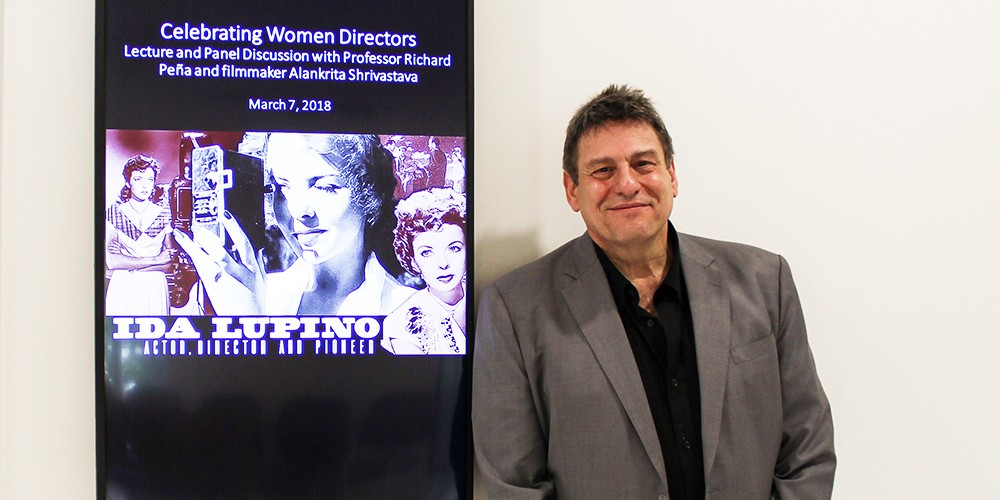Women Directors in Cinema

To mark International Women's Day, Columbia Global Centers | Mumbai and the US Consulate General in Mumbai organized a public lecture and panel discussion celebrating women directors in cinema. In the wake of recent events in Hollywood and beyond, issues of gender equity in cinema are in the spotlight more than ever before.
The lecture focused on the career of Ida Lupino, a popular Hollywood actor from the 1940s who went on to become a pioneer in the field of independent filmmaking. It was delivered by Richard Peña, Professor of Professional Practice in Film, School of the Arts, Columbia University. He described Lupino’s work as groundbreaking in an era “when direction in Hollywood was a men’s club.” Lupino’s films tackled a number of women-oriented and bold subjects for her time, including unwanted pregnancy, rape and bigamy. This year marks her birth centenary.
According to Professor Peña, who also served as the Director of the New York Film Festival from 1988 to 2012, Lupino’s films received a second life when her contribution to the industry was rediscovered by international film festivals. He said, “Ever since the 1970s, a newly empowered women’s movement across the world has sought to resurrect foremothers in just about every field from medicine to politics to the arts; to resurrect those hidden from history. They are especially important in the new wave of film programs in the US and internationally, combined with increasingly accessible technologies in sound and image, giving women a chance to make films more than ever before.”
The lecture was followed by a panel discussion on women in the Indian film industry for which Professor Peña was joined by filmmaker Alankrita Shrivastava who directed the critically-acclaimed Bollywood film, Lipstick Under My Burkha. The discussion was moderated by Dr. Ravina Aggarwal, Director of the Mumbai Center, and explored issues influencing women’s participation in the industry.
Shrivastava revealed that Indian film sets continue to be dominated by men, women face discrimination when being hired in technical roles, and that power dynamics came into play when they occupy important positions on set. She also highlighted how the formation of a few women’s collectives in cinema can be seen as a step in the right direction, and how she creates spaces for female leads in her films. Each of the panelists shared their thoughts on the future of women directors and agreed on the crucial role film distributers could play in increasing the reach of women’s works.
The Center and the US Consulate General in Mumbai also organized a separate workshop on Cinema as a Catalyst for Social Action with Professor Peña. The workshop used short films and video excerpts to explore the role of film as a social agent, both in terms of its capacity to reflect existing social conditions as well as to imagine alternatives to those positions.